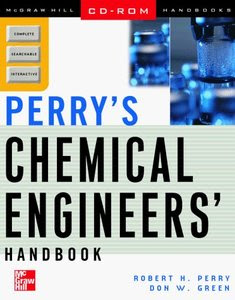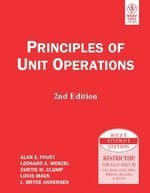Friday, 6 September 2013
Tuesday, 6 August 2013
Chemical Engineering Introduction,History and Literature
Author: Unknown |
14:41 |
No comments |
![]()
Chemical Engineering: An Introduction
(Cambridge Series in Chemical Engineering)
By Morton Denn (Author)
"Chemical engineering is the field of applied science that employs physical, chemical, and biological rate processes for the betterment of humanity." This opening sentence of Chapter 1 has been the underlying paradigm of chemical engineering. Chemical Engineering: A New Introduction is designed to enable the student to explore the activities in which a modern chemical engineer is involved by focusing on mass and energy balances in liquid-phase processes. Problems explored include the design of a feedback level controller, membrane separation, hemodialysis, optimal design of a process with chemical reaction and separation, washout in a bioreactor, kinetic and mass transfer limits in a two-phase reactor, and the use of the membrane reactor to overcome equilibrium limits on conversion. Mathematics is employed as a language at the most elementary level. Professor Morton M. Denn incorporates design meaningfully; the design and analysis problems are realistic in format and scope. Students using this text will appreciate why they need the courses that follow in the core curriculum.
Chemical Elements: How They Were Discovered
By D. N. Trifonov and V. D. Trifonov
Unit Operations of Chemical Engineering and Solution By Warren McCabe , Julian Smith, Peter Harriott
Author: Unknown |
14:38 |
No comments |
![]()
Rules of Thumb for Chemical Engineers
Author: Unknown |
14:27 |
No comments |
![]()
Rules of Thumb for Chemical Engineers
4th Edition By Carl R. Branan
Rules of Thumb for Chemical Engineers
3rd Edition By Carl R. Branan
The most complete guide of its kind, this is the standard handbook for chemical and process engineers. All new material on fluid flow, long pipe, fractionators, separators and accumulators, cooling towers, gas treating, blending, troubleshooting field cases, gas solubility, and density of irregular solids. This substantial addition of material will also include conversion tables and a new appendix, "Shortcut Equipment Design Methods." This convenient volume helps solve field engineering problems with its hundreds of common sense techniques, shortcuts, and calculations. Here, in a compact, easy-to-use format, are practical tips, handy formulas, correlations, curves, charts, tables, and shortcut methods that will save engineers valuable time and effort.
Rules of Thumb for Chemical Engineers
5th Edition By Stephen Hall
Includes all new material on new processing sectors, include biopharmaceuticals. The text is comprehensively revised and updated with new data and formulas. Rules of Thumb for Chemical Engineers solves process design problems quickly, accurately and safely, with hundreds of common sense techniques, shortcuts and calculations.
Rules of Thumb in Engineering Practice
By Donald R. Woods
An immense treasure trove containing hundreds of equipment symptoms, arranged so as to allow swift identification and elimination of the causes. These rules of thumb are the result of preserving and structuring the immense knowledge of experienced engineers collected and compiled by the author - an experienced engineer himself - into an invaluable book that helps younger engineers find their way from symptoms to causes.
Perrys Chemical Engineers Handbooks Collection
Author: Unknown |
14:17 |
1 comment |
![]()
Perry's Chemical Engineers' Handbook
Eighth Edition
By Don W. Green, Robert H. Perry
First published in 1934, Perry's Chemical Engineers' Handbook has equipped generations of engineers and chemists with an expert source of chemical engineering information and data. Now updated to reflect the latest technology and processes of the new millennium, the Eighth Edition of this classic guide provides unsurpassed coverage of every aspect of chemical engineering-from fundamental principles to chemical processes and equipment to new computer applications.
Filled with over 700 detailed illustrations, the Eighth Edition of Perry's Chemcial Engineering Handbook features:
- Comprehensive tables and charts for unit conversion
- A greatly expanded section on physical and chemical data
- New to this edition: the latest advances in distillation, liquid-liquid extraction, reactor modeling, biological processes, biochemical and membrane separation processes, and chemical plant safety practices with accident case histories
Perry's Chemical Engineers' Handbook
By Robert H. Perry, Don W. Green
This is the new edition of chemical and process engineers' favorite reference. Previous editions of this authoritative, comprehensive handbook have sold more than 887,000 copies. This Seventh Edition contains 50% new or revised material, including new information on condensers, reboilers, evaporators, and vessels; multicomponent and enhance distillation including azeotropic, extractive, and reactive methods; gas absorption processes with data on plate performance, plate design, and packed towers, super-critical fluid and membrane separation processes; biochemical separation processes; materials of construction; and materials for process applications.
Perry's Chemical Engineers' Handbook
By Robert H Perry, Cecil H Chilton and Don W Green
Consolidated Perrys Chemical Engineers Handbook
Coulson and Richardson's Chemical Engineering and Solutions
Author: Unknown |
13:53 |
No comments |
![]()
Coulson and Richardson's Chemical Engineering and Solutions
Volume 1
Coulson and Richardson's Chemical Engineering and Solutions
Volume 2
Coulson and Richardson's Chemical Engineering and Solutions
Volume 3
Coulson and Richardson's Chemical Engineering and Solutions
Volume 6 , 4th Edition
Coulson and Richardson's Chemical Engineering and Solutions
Principles of Unit Operations By Author : Leonard A. Wenzel, L. Bryce Andersen, Alan S. Foust, Curtis W. Clump, Louis Maus
Author: Unknown |
13:39 |
1 comment |
![]()
Hawley's Condensed Chemical Dictionary Fifteenth Edition By Richard J. Lewis, Sr.
Author: Unknown |
13:36 |
No comments |
![]()
Hawley's Condensed Chemical Dictionary, 15th Edition is a compilation of technical data and descriptive information covering thousands of chemicals and chemical phenomena, trade name products, processes, reactions, products, and related terminology.
- Updates and expands the coverage from the previous edition
- Adds entries for notable chemists and Nobel Prize winners, equipment and devices, natural forms and minerals, named reactions, and chemical processes
- Provides concise, condensed, and prompt definitions of terms and phenomena in chemistry, biology, biochemistry, and more
- Is ideal for those with only minutes to devote to any given chemical substance or topic
In its fifteenth edition, Hawley’s Condensed Chemical Dictionary once again establishes itself as the world’s principal lexicon of industrial chemicals, nomenclature, processes, reactions, products, and related terminology. Scrutinized and extensively revised by internationally renowned chemist and reference author, Richard J. Lewis Sr., this newest edition features updated information on production, usage, and regulatory trends.
In addition, the dictionary contains:
- Up-to-date chemical entries, definitions, and cross references
- Web links to new, as well as established, manufacturers and associations
- To-the-point information on natural products, manufacturing processes, and equipment
This latest edition of the Condensed Chemical Dictionary has retained all the essential characteristics that have made it a bestseller by providing identification of chemical substances by name, physical properties, source of occurrence, CAS number, chemical formula, potential hazards, derivations, synonyms, and applications. It continues to be an essential tool for chemists and chemical engineers, environmental professionals, industrial hygienists, toxicologists, police and firefighters, EMTs, emergency clean-up technicians, and managers of toxicological and chemical information systems.
Frontiers in Chemical Engineering:Research Needs and Opportunities
Author: Unknown |
13:31 |
No comments |
![]()
Authors :
Committee on Chemical Engineering Frontiers: Research Needs and Opportunities, National Research Council
Description:
In the next 10 to 15 years, chemical engineers have the potential to affect every aspect of American life and promote the scientific and industrial leadership of the United States. Frontiers in Chemical Engineering explores the opportunities available and gives a blueprint for turning a multitude of promising visions into realities. It also examines the likely changes in how chemical engineers will be educated and take their place in the profession, and presents new research opportunities.
Monday, 5 August 2013
CRC Handbook of Engineering Tables By Richard C. Dorf (Author)
Author: Unknown |
06:50 |
No comments |
![]()
The most important tables from every engineering discipline in one volume collected from the best, most authoritative references in the business--it's now more than wishful thinking. The CRC Handbook of Engineering Tables makes it a reality. The most frequently consulted tables and figures from CRC's acclaimed engineering handbooks are gathered together to provide a one-stop resource for the data that engineers around the world rely upon.
Organized by engineering specialty and extensively indexed, this handbook is designed for fast, convenient access and is one reference you'll want to keep close at hand throughout your career.
Chemistry and Chemical Engineering Research Progress (Chemical Engineering Methods and Technology) By A. K. Haghi (Author)
Author: Unknown |
06:46 |
No comments |
![]()
Encyclopedia of Physical Science and Technology,Third Edition By Robert A. Meyers (Editor)
Author: Unknown |
06:43 |
No comments |
![]()
Nine years has passed since the 1992 second edition of the encyclopedia was published. This completely revised third edition, which is a university and professional level compendium of chemistry, molecular biology, mathematics, and engineering, is refreshed with numerous articles about current research in these fields. For example, the new edition has an increased emphasis on information processing and biotechnology, reflecting the rapid growth of these areas. The continuing Editor-in-Chief, Robert Meyers, and the Board prepared a new topical outline of physical science and technology to define complete coverage. Section editors are either Nobel Laureates or editors of key journals in their fields. Additional Board members representing the global scientific community were also recruited.
The new 18-volume edition of the Encyclopedia of Physical Science and Technology, 3E, will have the added feature of an Index Volume, containing abstracts of all of the articles in the encyclopedia.
The latest edition of the Encyclopedia of Physical Science and Technology:
Has been completely updated with no less than 90% revised material and 50% new content throughout the volumes
Presents eighteen volumes, nearly 800 authoritative articles and 14,500 pages
Is lavishly illustrated with over 7,000 photographs, illustrations and tables
Presents an increased emphasis on the hottest topics such as information processing, environmental science, biotechnology and biomedicine
Includes a final Index Volume containing Thematic, Relational and Subject indexes
Popular Posts
-
Perry's Chemical Engineers' Handbook Eighth Edition By Don W. Green , Robert H. Perry First published in 1934, Perry's Chemica...
-
Rules of Thumb for Chemical Engineers 4th Edition By Carl R. Branan Rules of Thumb for Chemical Engineers 3rd Edition By Carl R. Branan Th...
-
Unit Operations of Chemical Engineering and Solution By Warren McCabe , Julian Smith, Peter HarriottUnit Operations of Chemical Engineering 5th Edition By Warren McCabe , Julian Smith , Peter Harriott Unit Operations of Chemical Eng...
-
Chemical Engineering: An Introduction (Cambridge Series in Chemical Engineering) By Morton Denn (Author) "Chemical engineering is th...
-
Coulson and Richardson's Chemical Engineering and Solutions Volume 1 Coulson and Richardson's Chemical Engineering and Solutions Vol...
-
You Need To Download DJVu READER To Read This Book
-
This is the most comprehensive dictionary of maintenance and reliability terms ever compiled, covering the process, manufacturing, and other...
Recent Posts
Powered by Blogger.
Blog's Stats
Followers
About Me
Blog Archive
-
▼
2013
(26)
-
►
August
(19)
- Chemical Engineering Introduction,History and Lite...
- Unit Operations of Chemical Engineering and Soluti...
- Rules of Thumb for Chemical Engineers
- Perrys Chemical Engineers Handbooks Collection
- Coulson and Richardson's Chemical Engineering and ...
- Principles of Unit Operations By Author : Leonard ...
- Hawley's Condensed Chemical Dictionary Fifteenth E...
- Frontiers in Chemical Engineering:Research Needs a...
- CRC Handbook of Engineering Tables By Richard C. D...
- Chemistry and Chemical Engineering Research Progre...
- Encyclopedia of Physical Science and Technology,Th...
-
►
August
(19)













































